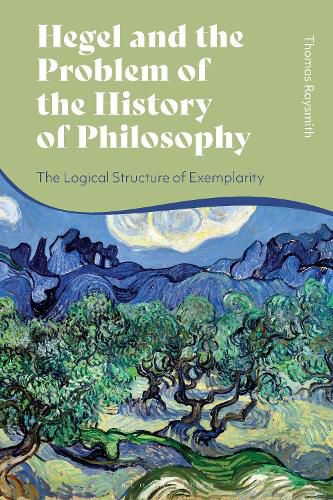Readings Newsletter
Become a Readings Member to make your shopping experience even easier.
Sign in or sign up for free!
You’re not far away from qualifying for FREE standard shipping within Australia
You’ve qualified for FREE standard shipping within Australia
The cart is loading…






Drawing on the work of major philosophers in 18th and 19th-century German idealism, Thomas Raysmith critically examines G. W. F. Hegel's justification for the claim that philosophy has a history.
While Kant regarded philosophy as ahistorical, Hegel considered it to be a discipline that is necessarily historical, and elaborated a 'logical structure' that was supposed to allow it to have a history. Calling this structure, which Hegel took to be the fundamental structure of thought itself, 'the structure of exemplarity', Raysmith presents it as a dynamic reciprocity between universality, particularity and singularity. He provides a historical reconstruction of the shifting conceptions of philosophy from Kant, through J. G. Fichte and F. W. J. Schelling, to Hegel, and offers a systematic analysis of Hegel's Science of Logic based on a close, critical reading.
Offering a compelling and novel reading of Hegel's thought, Hegel and the Problem of the History of Philosophy is a groundbreaking work for students and scholars of German idealism and the history of philosophy more broadly.
$9.00 standard shipping within Australia
FREE standard shipping within Australia for orders over $100.00
Express & International shipping calculated at checkout
Drawing on the work of major philosophers in 18th and 19th-century German idealism, Thomas Raysmith critically examines G. W. F. Hegel's justification for the claim that philosophy has a history.
While Kant regarded philosophy as ahistorical, Hegel considered it to be a discipline that is necessarily historical, and elaborated a 'logical structure' that was supposed to allow it to have a history. Calling this structure, which Hegel took to be the fundamental structure of thought itself, 'the structure of exemplarity', Raysmith presents it as a dynamic reciprocity between universality, particularity and singularity. He provides a historical reconstruction of the shifting conceptions of philosophy from Kant, through J. G. Fichte and F. W. J. Schelling, to Hegel, and offers a systematic analysis of Hegel's Science of Logic based on a close, critical reading.
Offering a compelling and novel reading of Hegel's thought, Hegel and the Problem of the History of Philosophy is a groundbreaking work for students and scholars of German idealism and the history of philosophy more broadly.